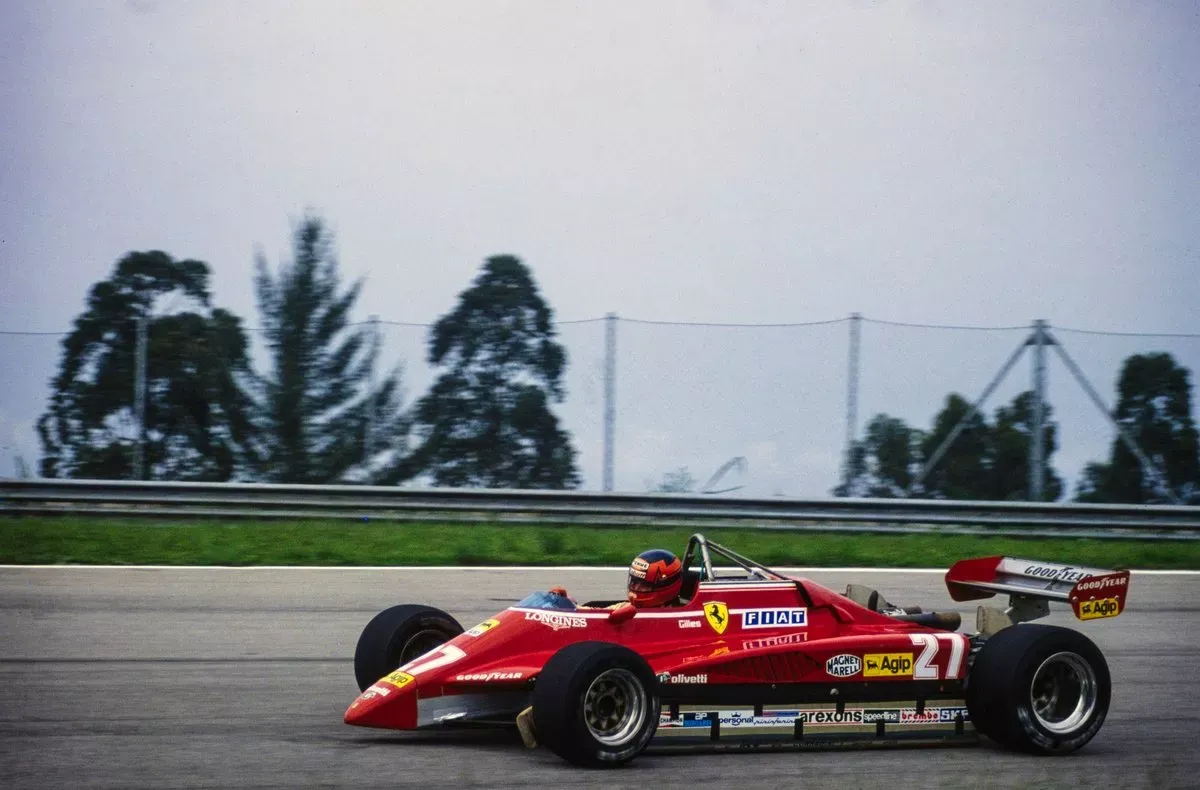Formula One News
On the 40th anniversary of Gilles Villeneuve's death, Formula 1 remembers a legend of its history. In a freshly uncovered interview from 1996, Ferrari chief designer Harvey Postlethwaite provides insight into Villeneuve, his relationship with teammate Didier Pironi and his impact at Ferrari.
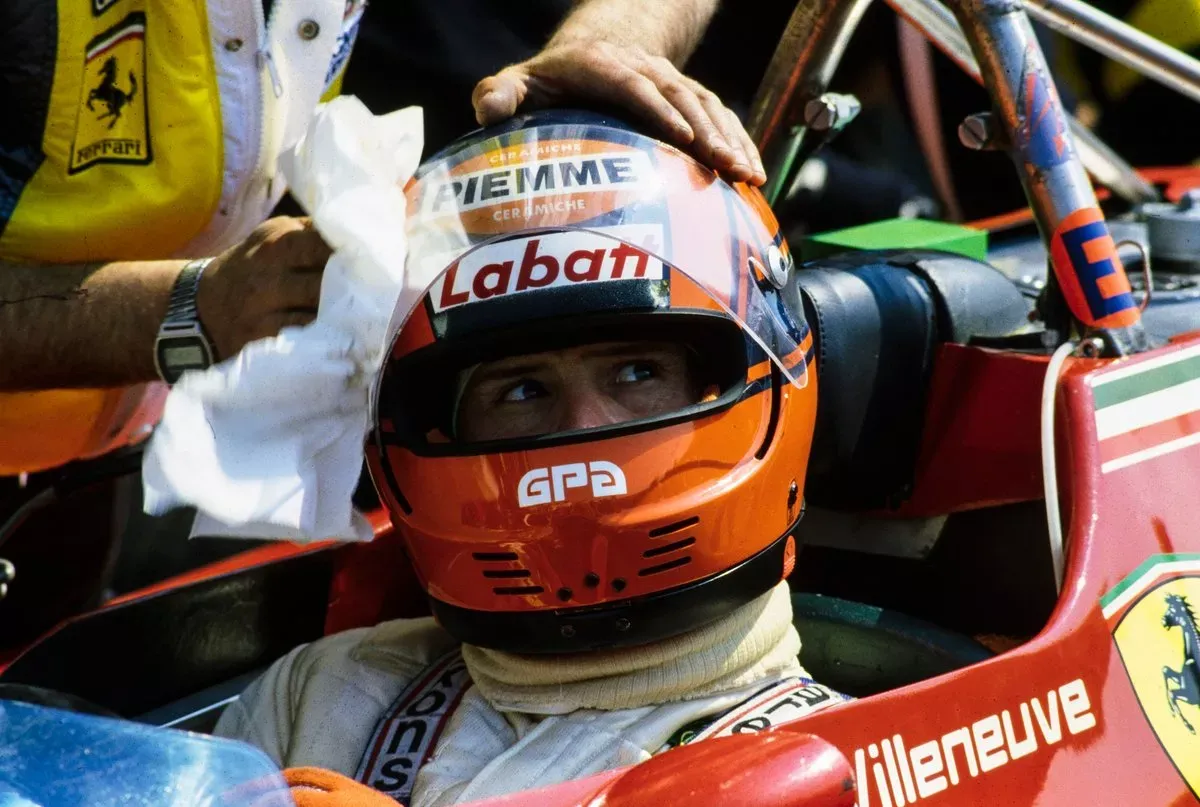
Forty years ago today, Gilles Villeneuve lost his life after colliding with Jochen Mass during qualifying for the Belgian Grand Prix at Zolder.
The story of his Ferrari team’s tumultuous 1982 Formula 1 season, which also included career-ending injuries for Villeneuve’s teammate Didier Pironi, has been told many times.
However, one voice rarely quoted is that of the Maranello team’s chief designer Harvey Postlethwaite, whose 126C2 won the constructors’ championship that year – and should have won the drivers’ title.
In 1996, three years before he died, Postlethwaite told this writer about that season and the complex relationship between Villeneuve and Pironi. The interview wasn’t used at the time, and for the past 26 years it’s been lost in a box of old micro cassettes.
Much like his contemporary Patrick Head, Postlethwaite was a no-nonsense racer, not given to sentimental reflection. However, it was clear that he had fond memories of Villeneuve among the many drivers he had worked with over the years.
“Gilles had this image of being completely mad,” he said. “Well mad is probably the wrong word, but of being very fast and being I suppose irresponsible, almost, in a racing car. In fact, it wasn't quite like that.
“He was a very serious driver, he took his driving very seriously. But he did like to take everything very much to the limit. And he liked every lap he drove to be as quick, or quicker, than the last lap he drove.
“Now, that was a way I suppose he probably had of pushing himself to the limit. But he was certainly rather brighter and rather less of a madman than people have made out. I mean, the image has probably grown with the passing time, but actually, I always found him very serious, and really quite a bright guy.
“He was by no means a politician, and he spoke very clearly and simply about the car. And I think he was greatly appreciated for that. But he was bloody quick. I mean, there's no doubt about that. He was probably one of the fastest racing drivers there's ever been.”
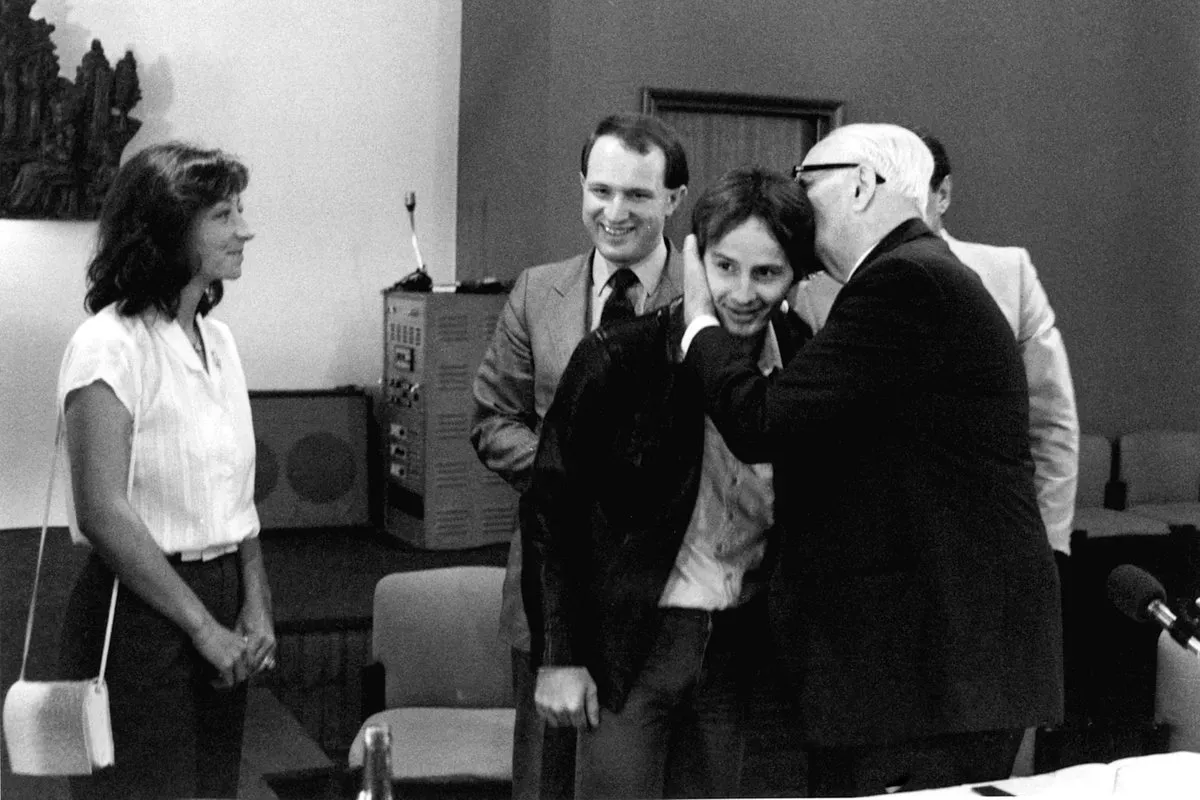
Postlethwaite confirmed that Enzo Ferrari had a soft spot for Villeneuve, who first raced for him at the end of 1977.
“Ferrari the racing team then was much, much less political than it is now,” reckoned Postlethwaite. “Still, there was a certain amount of not stepping on people's toes. And Gilles didn't mind whose toes he stepped on! If he thought the car was no good, he said that, and that tended to upset a number of people, but he didn't mind doing that.
“And the Old Man loved him very much for it, because he thought that was exactly what he wanted to hear. He wanted to know.
“They barely had a language in common – they had some French in common. But I don't think anyone was ever really close to Enzo Ferrari. Certainly, he had a great affection for Gilles without any doubt, because Gilles did what few other people could do. He could do what Michael Schumacher is doing today, he could take a car which is probably not the best, and he could make it go as quick as anybody else.
"Gilles was quick everywhere. But particularly, and it sounds almost silly, but it's quite true, Gilles was amazing on slow corners. On twisty corners he was unbelievably quick" Harvey Postlethwaite
“Pironi was a different sort of guy,” Postlethwaite recalled. “I knew him less well, I didn't know him at all until I went to work for Ferrari. He wasn't such an open sort of person, so rather more difficult to get to know. But he was also pretty quick.”
Postlethwaite gave an interesting insight into the styles of the two drivers: “Gilles was quick everywhere. But particularly, and it sounds almost silly, but it's quite true, Gilles was amazing on slow corners. On twisty corners he was unbelievably quick.
“And Pironi was quick at fast circuits. He was a very, very amazingly brave driver in fast corners. He never lifted. And in a funny way, they complemented each other.”
Villeneuve and Pironi were firm friends – until the infamous 1982 San Marino GP, a race boycotted by most of the British teams.
After the Renault challenge faded, they traded the lead several times. The Canadian believed they were putting on a show for the fans, and that Pironi would comply with a pre-race agreement and let him win. It was also a tight race on fuel consumption, and both drivers had to be mindful of that.
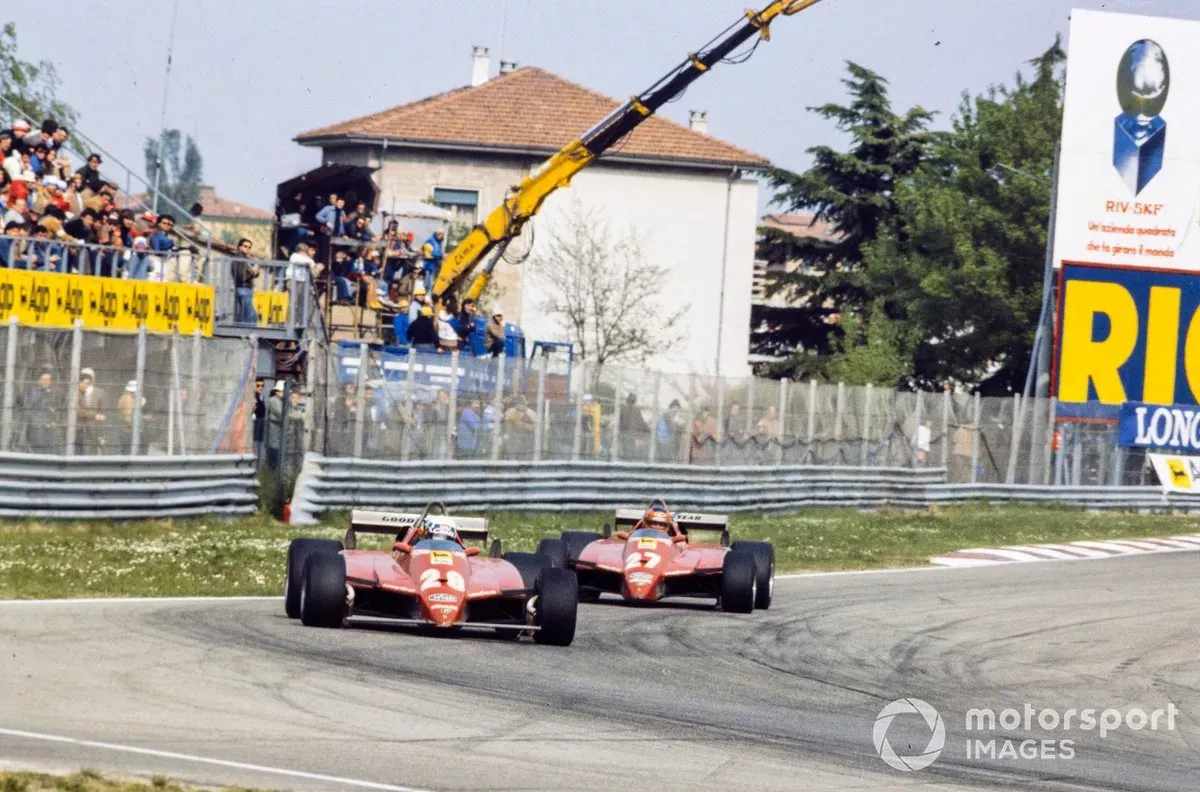
On the last lap Pironi blasted past and took the flag, leaving Villeneuve with no time to respond. After the race he was adamant that he had been robbed, and swore that he would not talk to his teammate again.
Although Villeneuve’s feelings were well known, Postlethwaite downplayed the impact in the camp. “I think the animosity that was supposed to have been between them was blown up out of proportion,” he insisted.
“There may have been a moment's animosity over the business of what happened at Imola. But even that was blown out of all proportion. Certainly, within the team, it wasn't perceived as anything particularly problematic at the time."
So had Pironi established himself in a strong enough position to get away without censure from the management?
“I didn't think his position was any stronger than Gilles' was,” said Postlethwaite. “I think rather the opposite, I would say. Don't try and simplify the internal politics of Ferrari to a thing like that, there was much more going on than that. And the Old Man was pretty much up to date with everything that was happening.
“He had them in and gave them both a talking to. He was talking to the drivers all the time. They spent a lot of time at Maranello, the drivers, they had to be there. When the testing was on he liked to watch, and he talked to the drivers all the time. I think he was very much in control of the situation.”
Villeneuve stuck to his vow not to talk to Pironi in the days after Imola, and he was still fuming when he got to the next race in Zolder.
The accepted wisdom is that he was so fired up by what had happened a fortnight earlier, and so keen to outpace his teammate, that the qualifying accident that claimed his life was a direct result of their feud.
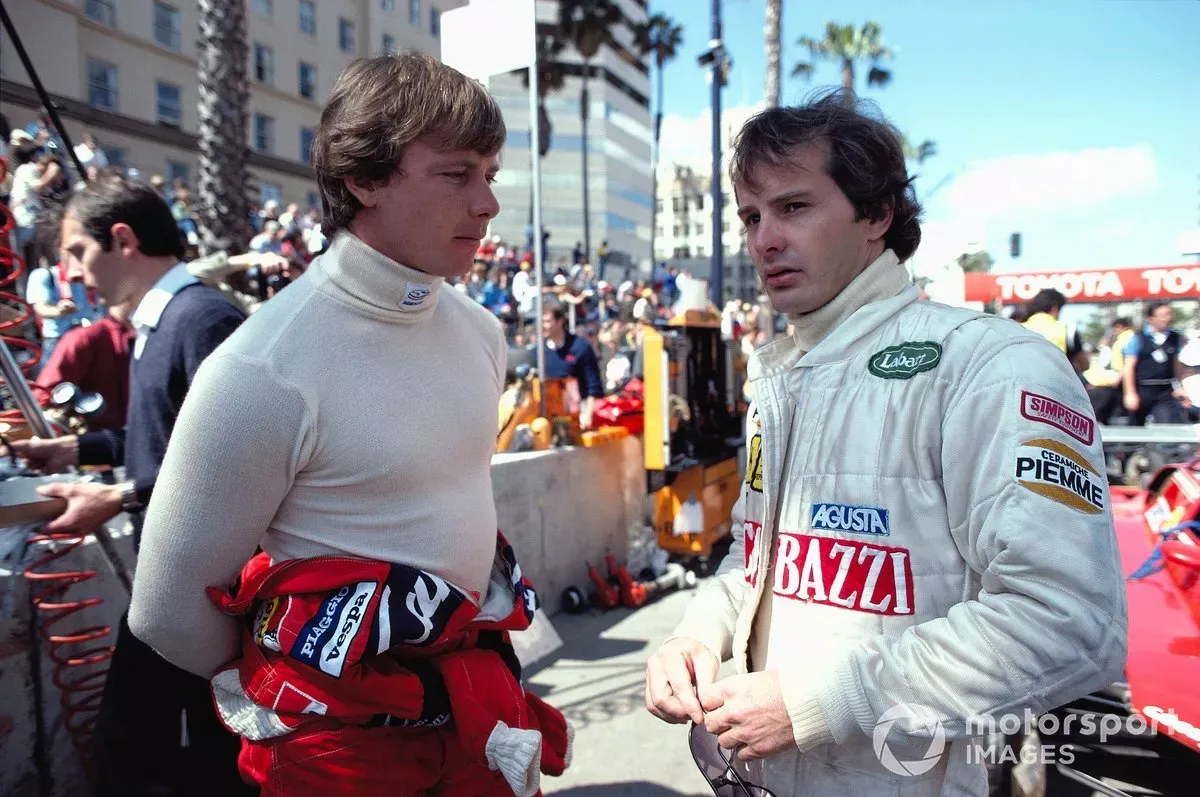
Postlethwaite, who was back in Maranello that weekend and thus arguably a step removed from the tension in the camp, downplayed any connection: “Gilles was always desperate to qualify ahead.
“Gilles had a will to win which was just incredible. He would overtake anybody in anything, all the time. He didn't care. I mean, that was the way he was, he just wouldn't let people get in his way.
“Personally, I do not think that what happened at Imola in any way contributed to what happened subsequently in Zolder. I never have believed that. It's a good story, but I don't think it had anything to do with it.
“Gilles wanted to be the quickest all the time, and if that meant overtaking people… You should see the things he got up to on the bloody road. If a car was in front of him, it was to be overtaken. It wasn't that he was sort of particularly aggressive. It was just that was the way he was, if he saw a car in front, he would overtake it. That was it. He just knew he was the quickest driver.”
"Gilles would have been world champion that year I think, without any doubt. The car was good enough, the engine was good enough and Ferrari was good enough to get him onto the podium often enough" Harvey Postlethwaite
After Zolder the team carried on, with Patrick Tambay stepping in and later scoring an emotional win in Germany. Pironi won in Holland and logged a string of podiums in a year when no driver or team dominated. Heading to Hockenheim in August with five rounds to go, he led the world championship by nine points.
In a wet session on Saturday morning the Frenchman was fastest when he ran into the back of Alain Prost’s Renault, and his car took off. The crash was uncannily similar to Villeneuve’s, but he survived, albeit with badly broken legs. It was the end of his racing career.
“What can you do?,” said Postlethwaite. “That's motor racing, isn't it? And these sorts of things happen. The velocity of Villeneuve's accident was incredible, and the severity of the other accident was incredible. The car went up in the air, God knows how fast.
"They were two very, very severe accidents, and to have them both happen in one year was an awful tragedy. And I think it was something that had a very big effect on everybody.
“It's difficult now to remember your emotions at the time. Funnily enough, I remember the day of the Pironi accident more than the day of the Villeneuve accident, because the Pironi accident seemed so silly.”
Including Hockenheim, Pironi missed the last five races of the season – and he was still classified second in the standings, five points behind Keke Rosberg. The constructors’ title provided some consolation for Ferrari.
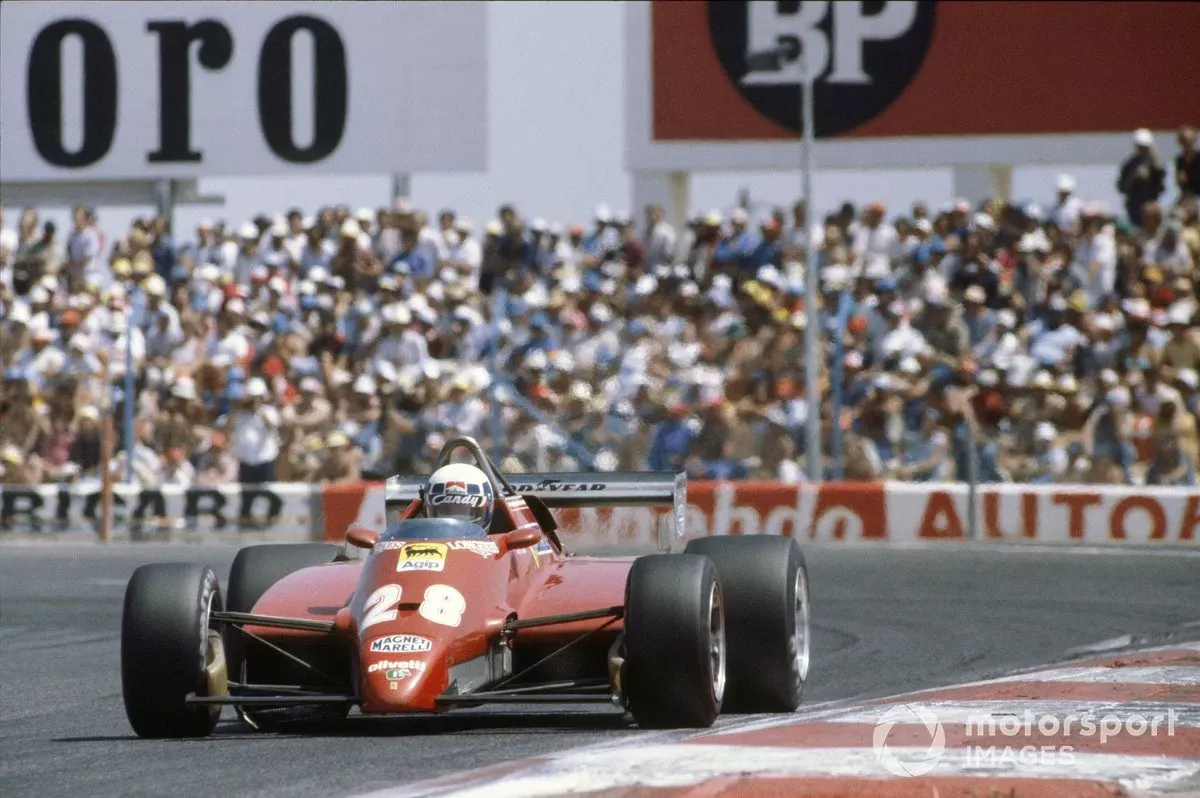
In 1986 Pironi did some testing with AGS and Ligier, but an F1 comeback was never on the cards. Instead, he forged a new career in offshore powerboat racing. In August 1987, just over five years after the Hockenheim crash, he was killed in an accident off the Isle of Wight.
Postlethwaite remained adamant that Villeneuve would have won in 1982, and could have gone on to achieve much more.
“Gilles would have been world champion that year I think, without any doubt,” he said. “The car was good enough, the engine was good enough and Ferrari was good enough to get him onto the podium often enough for him to have won the world championship.
“Personally, I've always liked drivers who were quick, and he was quick. It's always nice to deal with a driver like that. Gilles was a star in a period before telemetry. It's different now, it's all very much more scientific.
“Whether somebody like him will be capable of winning those races today, I don't know, but certainly in that period he was able to win races. When you look at the bloody races with that turbo car in 1981, Monaco and Spain, it’s unbelievable what he did with that car.
“It's really difficult to know what he would have gone on to do. We can speculate, but I'd like to believe that he would have won several world championships, and that he would have been a wonderful ambassador for the sport.
“I think the sport needs world champions with character, and he was a wonderful character, a colourful character, he was a personaggio, as they say. The fans, particularly in Italy, will always love a driver who is quick. He could do things with racing cars which other drivers couldn't do.
“He had a helicopter and he'd try and make it loop. That was the kind of guy he was. And I think people just appreciated that, certainly then. One of the sad things is probably the whole world is now much more anaesthetised to these things, and perhaps that isn't quite kosher these days."
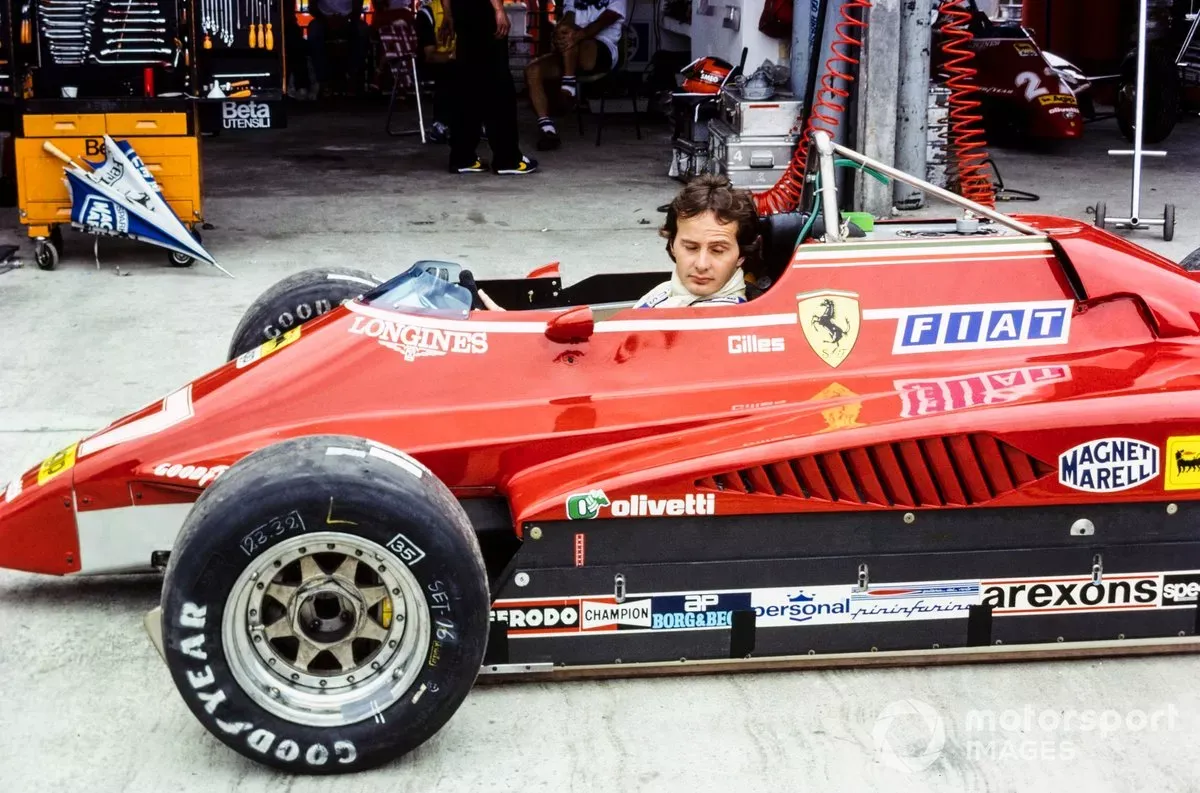
There would be more race wins before Postlethwaite left Maranello in 1987, but the 1982 car remains the one that his tenure at the team is best remembered for.
“I have my own memories and my own experiences of the situation,” he said. “And I suppose it's not something one likes to go back over, because when a driver gets hurt in a car, you don't really want to go back over it.
“There were positive things and negative things that came out of it. But I personally I don't like to see that whole thing hyped up. And I think it was hyped up.
"I think the sport needs world champions with character, and he was a wonderful character, a colourful character, he was a personaggio" Harvey Postlethwaite
“There is some truth in the various rumours about what happened, and the animosity that there was between the drivers, but it was blown up out of all proportion. And I think actually I'd far prefer to remember those two drivers as good friends, and they were actually, off the track quite good friends, I remember.
“They shared a language, and they shared a lot of other things. I think that they were both excellent drivers, and they were both very, very competitive. It was a great tragedy that both of them got killed in accidents.”
